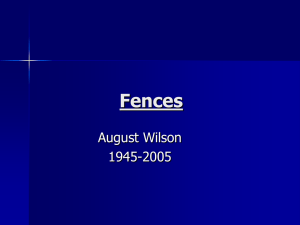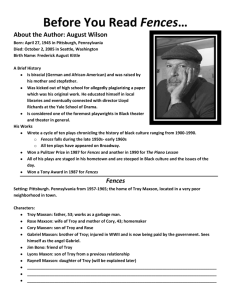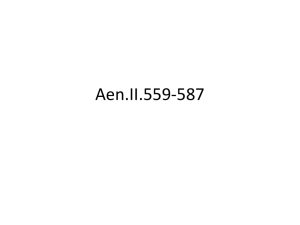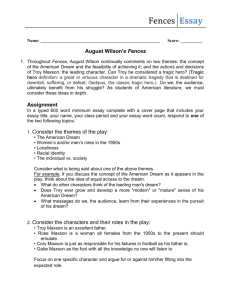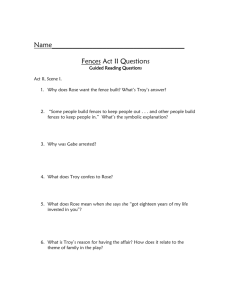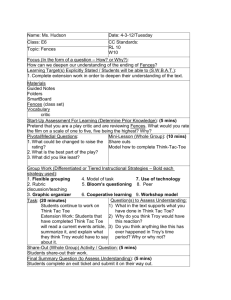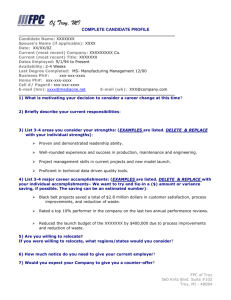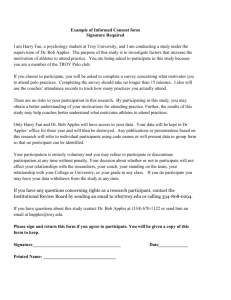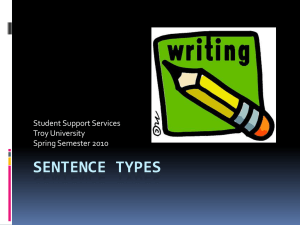Fences Discussion Questions: Character, Plot, & Symbols
advertisement
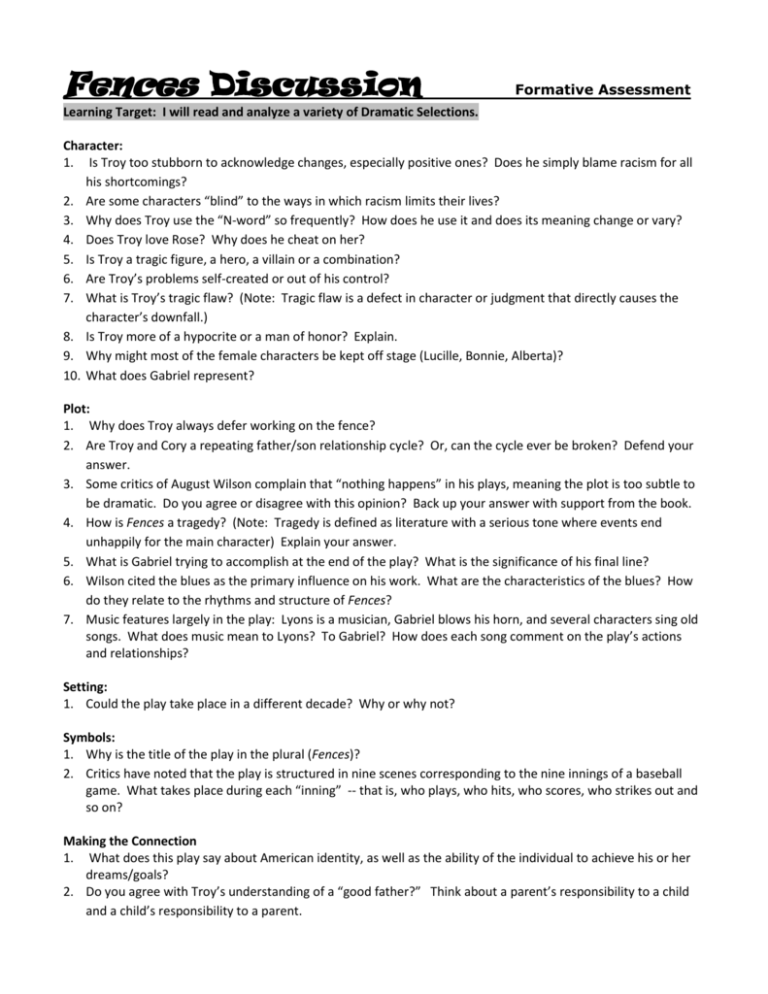
Fences Discussion Formative Assessment Learning Target: I will read and analyze a variety of Dramatic Selections. Character: 1. Is Troy too stubborn to acknowledge changes, especially positive ones? Does he simply blame racism for all his shortcomings? 2. Are some characters “blind” to the ways in which racism limits their lives? 3. Why does Troy use the “N-word” so frequently? How does he use it and does its meaning change or vary? 4. Does Troy love Rose? Why does he cheat on her? 5. Is Troy a tragic figure, a hero, a villain or a combination? 6. Are Troy’s problems self-created or out of his control? 7. What is Troy’s tragic flaw? (Note: Tragic flaw is a defect in character or judgment that directly causes the character’s downfall.) 8. Is Troy more of a hypocrite or a man of honor? Explain. 9. Why might most of the female characters be kept off stage (Lucille, Bonnie, Alberta)? 10. What does Gabriel represent? Plot: 1. Why does Troy always defer working on the fence? 2. Are Troy and Cory a repeating father/son relationship cycle? Or, can the cycle ever be broken? Defend your answer. 3. Some critics of August Wilson complain that “nothing happens” in his plays, meaning the plot is too subtle to be dramatic. Do you agree or disagree with this opinion? Back up your answer with support from the book. 4. How is Fences a tragedy? (Note: Tragedy is defined as literature with a serious tone where events end unhappily for the main character) Explain your answer. 5. What is Gabriel trying to accomplish at the end of the play? What is the significance of his final line? 6. Wilson cited the blues as the primary influence on his work. What are the characteristics of the blues? How do they relate to the rhythms and structure of Fences? 7. Music features largely in the play: Lyons is a musician, Gabriel blows his horn, and several characters sing old songs. What does music mean to Lyons? To Gabriel? How does each song comment on the play’s actions and relationships? Setting: 1. Could the play take place in a different decade? Why or why not? Symbols: 1. Why is the title of the play in the plural (Fences)? 2. Critics have noted that the play is structured in nine scenes corresponding to the nine innings of a baseball game. What takes place during each “inning” -- that is, who plays, who hits, who scores, who strikes out and so on? Making the Connection 1. What does this play say about American identity, as well as the ability of the individual to achieve his or her dreams/goals? 2. Do you agree with Troy’s understanding of a “good father?” Think about a parent’s responsibility to a child and a child’s responsibility to a parent.
